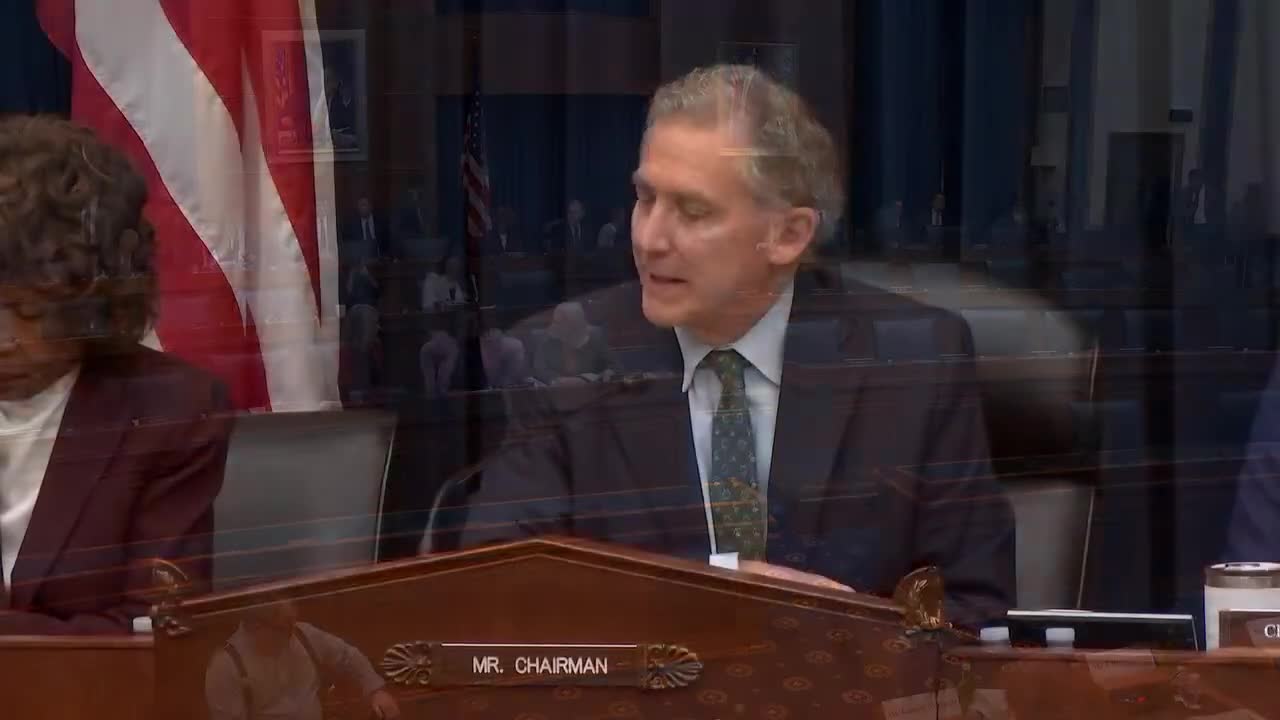House Financial Services Committee holds wide‑ranging hearing on deposit insurance reforms
Get AI-powered insights, summaries, and transcripts
Subscribe
Summary
Witnesses and members debated proposals ranging from a temporary eTAG guarantee to permanent increases in FDIC coverage (including a Senate discussion of a $10 million cap), highlighting data gaps in FDIC reporting, cost and moral‑hazard trade‑offs, and differing impacts on community banks.
The House Financial Services Committee on Nov. 21 convened a full‑committee hearing titled “The Future of Deposit Insurance, Exploring the Coverage, Costs, and Depositor Confidence,” where members and a panel of industry and policy witnesses tested proposals to modernize the U.S. deposit insurance framework.
Chairman Hill opened the hearing by framing the central questions: what problem are reforms meant to solve, who benefits, who pays, and whether enough data exists to evaluate trade‑offs. He urged an approach that preserves system stability, depositor confidence and market discipline while minimizing moral hazard.
Ranking Member Waters used her opening statement to spotlight her bill — the Employ Paycheck and Small Business Protection Act (HR 4451) — and argued for a data‑driven expansion of coverage for business payment accounts and a temporary transaction‑account guarantee during emergencies. “My bill takes a data driven approach to increase the deposit insurance limit for business payment accounts,” Waters said, urging bipartisan work on the issue.
Witnesses offered sharply different views. Jim Ryan, chairman and CEO of Old National Bancorp, argued that deposit insurance has not kept pace with modern banking and that targeted coverage for non‑interest bearing business accounts would protect payroll and critical payments. Ryan said roughly 30% of his bank’s balances are uninsured and estimated modernization could cost “somewhere between 2 to 5 basis points” in assessments, far lower than emergency wholesale funding costs.
By contrast, Jill Castillo, president and CEO of Citizens Bank of Edmond, said the 2023 failures represented a “crisis of confidence, not a crisis of coverage.” Castillo described steps her community bank took during 2023 — contacting depositors directly, using reciprocal deposits and pledging collateral — and warned that broad expansion “would create moral hazard, weaken market discipline, and distort competition.” She urged better data collection and targeted reforms rather than blanket coverage increases.
Industry advocates including the Texas Bankers Association outlined a two‑step approach: first, an emergency transaction account guarantee (eTAG) to provide temporary, systemwide coverage for transaction accounts during a stress event (proposers favored a 120‑day window), and second, a deliberative modernization of permanent coverage informed by post‑event data. Jared Anderson of Paul Weiss and other witnesses urged reducing statutory hurdles that limit regulator speed — noting that the Dodd‑Frank framework and current decision rules make reviving a TAG‑style guarantee slower in future panics.
Skeptics of expanded federal coverage raised cost and long‑term risk concerns. Grover Norquist argued that raising limits risks subsidizing a small share of large accounts and urged private‑market insurance alternatives. Several members cited historical lessons — including the savings‑and‑loan episode — as reasons to weigh moral‑hazard risks carefully.
A central theme across questioning was the data gap. Multiple members and witnesses agreed that FDIC call reports currently aggregate account types in ways that make it difficult to estimate (a) how many business or transaction accounts would qualify for targeted expansions, (b) how depositors and banks might change behavior if limits were changed, and (c) the likely cost to the deposit insurance fund. Acting FDIC officials were referenced in the hearing record as having called for more granular deposit data.
Members pressed witnesses on concrete impacts: whether reciprocal deposit networks and other private tools could substitute for higher FDIC coverage, how increased assessments would be passed through to customers, and whether regional and community banks would see net benefits or be disadvantaged by increased concentration at the largest institutions. Witnesses offered technical and anecdotal answers: community banks described reciprocal networks and collateralized solutions that can extend protection today but noted cost and complexity; mid‑sized bank representatives said many businesses prefer the simplicity of a federal guarantee.
The hearing closed with bipartisan statements about the need for more study, better FDIC data collection, and continued deliberation. Several members entered letters and industry papers into the record and reserved follow‑up written questions for the witnesses. The committee left open near‑term actions ranging from enabling an emergency TAG‑style authority to instructing the FDIC to study and report on the incidence and elasticity of uninsured deposits.
The committee did not vote on legislation at the hearing. Members signaled continued interest in paired reforms — improved resolution tools and clearer emergency authorities alongside any permanent coverage changes — and asked the FDIC and other regulators for more granular deposit data to inform next steps.
